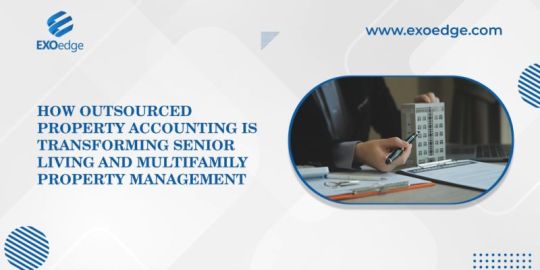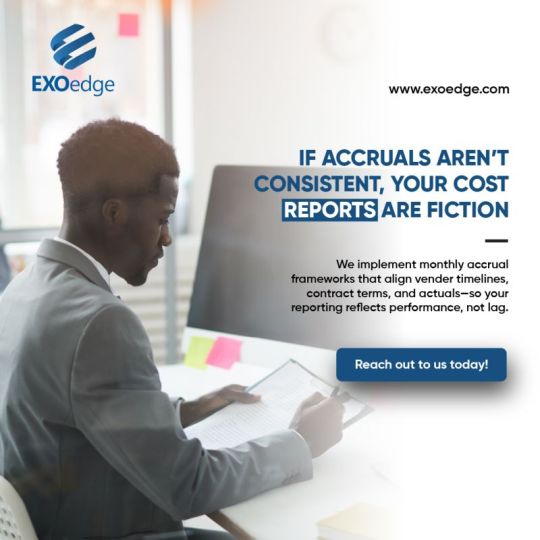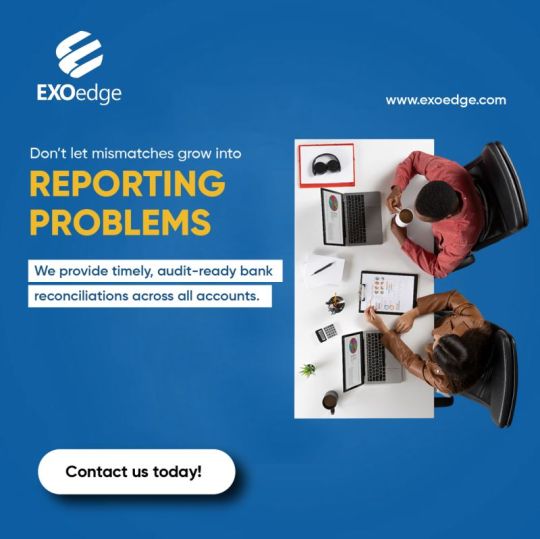Don't wanna be here? Send us removal request.
Text
How Accurate Accounting Helps Avoid Legal Disputes
In property management, legal disputes can arise quickly and unexpectedly—often due to unclear financial records or improper handling of tenant or owner funds. One of the most effective ways to prevent such issues is through accurate and organized property management accounting.
When done right, property management accounting does more than just track income and expenses—it provides a layer of legal protection by ensuring that all transactions are transparent, documented, and compliant with local laws.

1. Legal Risks in Property Management
Managing properties involves complex financial dealings: rent collection, security deposits, maintenance expenses, owner distributions, and more. Without accurate property management accounting, it's easy to miscalculate tenant charges, mishandle deposits, or delay payments. These seemingly small mistakes can escalate into legal battles if not properly addressed.
For example, if a tenant disputes their security deposit return and the property manager lacks accurate financial records, the case may lean in favor of the tenant—even if the property manager acted in good faith.
2. Clear Financial Records Reduce Misunderstandings
Accurate property management accounting ensures that every dollar is tracked and traceable. From rent payments to maintenance reimbursements, clear records can clarify any potential misunderstandings between landlords, tenants, and vendors. These records provide evidence in case of litigation and can help resolve disputes before they reach a courtroom.
In situations where tenants challenge late fee charges or landlords question monthly reports, well-maintained accounting logs offer clarity and confidence, reducing the likelihood of legal confrontation.
3. Compliance with Local and State Laws
Each jurisdiction has specific regulations regarding rent limits, fee structures, deposit handling, and accounting disclosures. Non-compliance, even if unintentional, can result in fines or lawsuits. Professional property management accounting ensures that financial transactions align with current legal standards—especially in areas like:
Prorating rent
Handling prepaid rent
Timely return of security deposits
Accurate owner statements
By staying compliant through accurate accounting, property managers protect both their business and their clients from legal exposure.
4. Audit-Readiness and Transparency
Disputes often lead to audits—whether initiated by a tenant, landlord, or legal entity. A solid property management accounting system ensures audit-readiness at any time. With digitized records and automated reporting, property managers can provide real-time access to:
Tenant ledgers
Owner distributions
Vendor invoices
Monthly financial reports
Being transparent with data builds trust and significantly reduces suspicion or escalation to legal claims.
5. Preventing Fraud and Unauthorized Transactions
Accurate accounting includes strong internal controls and reconciliations that help detect fraud early. Whether it’s misallocated expenses or double-charged rent, discrepancies are flagged before they become legal liabilities.
Property management accounting systems also create audit trails, so any unauthorized changes or manual overrides are documented. This level of transparency discourages internal misconduct and strengthens legal defense if fraud is ever alleged.
Conclusion: Accounting as a Legal Safeguard
Legal disputes in property management are costly, time-consuming, and damaging to reputation. But many of them are avoidable with accurate and consistent property management accounting. From ensuring compliance to preventing misunderstandings and fraud, solid accounting practices act as a preventive shield against legal trouble.
At EXO Edge, we help property managers stay legally protected through expert property management accounting services that deliver clarity, compliance, and control. Get in touch to safeguard your business and your reputation.
0 notes
Text

Property Management Company Accounting
Presented by EXO Edge
EXO Edge provides expert property management company accounting services that streamline financial operations, ensure compliance, and enhance portfolio performance. From rent roll reconciliation to expense tracking and reporting, our solutions offer accurate, timely insights to support better decision-making and operational efficiency for property management firms.
0 notes
Text
Case Study: A Landlord’s Journey to Outsourcing Success
Introduction Managing multiple properties can be both rewarding and overwhelming. From tenant issues and maintenance to bookkeeping and lease renewals, landlords often wear many hats. For Sarah Mitchell, a mid-sized landlord with 25 rental units across two cities, the daily grind became unmanageable. That was until she discovered the game-changing benefits of outsourcing property management. This case study explores Sarah’s journey from burnout to success—and how outsourcing transformed her business.
The Challenges Before Outsourcing Sarah began her real estate investment journey with just two rental properties. Over a decade, she expanded her portfolio but didn’t grow her team. She continued managing everything herself—tenant placement, rent collection, maintenance calls, and accounting. While her business grew, so did her stress levels.
Here were her main challenges:
Late-night maintenance emergencies
Delayed rent payments and poor tenant communication
Inaccurate financial reporting
Missed lease renewals and compliance issues
No time for strategic planning or expansion
Despite working 12-hour days, Sarah struggled to stay ahead. She realized that her DIY approach was no longer sustainable.
Discovering Outsourcing Property Management During a real estate networking event, Sarah met another landlord who had scaled successfully by outsourcing property management. Intrigued, she researched service providers that could support her accounting, tenant communication, and maintenance coordination needs.
She decided to partner with a professional outsourcing firm offering a comprehensive property management support package. This allowed her to delegate all the non-core tasks, freeing up her time and reducing stress.

The Transition Process Sarah approached the transition cautiously. Here’s how she managed the change effectively:
Assessment of Needs She identified which tasks could be outsourced: tenant communication, bookkeeping, vendor coordination, and lease management.
Partner Selection Sarah selected a firm that specialized in outsourcing property management for residential portfolios. Their team had a proven track record and integrated with her existing property management software.
Clear Communication & SOPs She developed standard operating procedures and set expectations regarding response times, documentation, and reporting.
Phased Transition The first month focused on onboarding and syncing data. Gradually, tasks were shifted from Sarah to the outsourced team.
The Results Within just three months of outsourcing property management, Sarah saw major improvements:
80% reduction in after-hours calls
95% on-time rent collection through automated reminders and follow-ups
Accurate, real-time financial reports delivered monthly
Improved tenant satisfaction scores
More time to focus on growing her portfolio
Most importantly, Sarah felt re-energized and confident in her role as a property owner—not just an overworked manager.
Key Takeaways Sarah’s experience proves that outsourcing property management is not just for large real estate firms. Individual landlords and small investors can also benefit tremendously. Here’s what made her outsourcing journey successful:
Choosing the right partner with real estate expertise
Setting clear expectations and workflows
Trusting the process and staying involved at a strategic level
Conclusion Outsourcing isn’t about giving up control—it’s about gaining the freedom to focus on what truly matters. For Sarah Mitchell, it meant more time, better tenant relationships, and a scalable business model. Her story is a testament to the power of outsourcing property management as a modern solution to traditional challenges in real estate.
0 notes
Text

Accounts Payable Property Management Presented by EXO Edge
EXO Edge offers expert solutions in accounts payable property management, helping real estate firms streamline invoice processing, improve payment accuracy, and maintain vendor trust. With automation, compliance controls, and scalable support, EXO Edge ensures efficient AP operations tailored to the unique needs of property management businesses.
0 notes
Text
Using Cloud Accounting in Outsourced Property Management
The property management industry is undergoing a digital revolution. As businesses strive for accuracy, scalability, and real-time insight, more property managers are turning to cloud accounting solutions integrated with outsourced property accounting services. This modern approach simplifies operations, enhances transparency, and supports strategic decision-making in an increasingly competitive market.
Why Cloud Accounting Is a Game Changer
Cloud accounting refers to using web-based platforms to manage financial data, enabling real-time access to books, invoices, payroll, and financial reports. When paired with outsource property accounting, it creates a powerful combination that eliminates manual processes and empowers remote teams to work seamlessly.
Traditional property accounting methods rely heavily on on-site software, paper-based systems, and manual reconciliation, all of which are prone to delays and errors. Cloud-based platforms, on the other hand, provide instant updates, automate repetitive tasks, and facilitate smooth collaboration between property managers and their outsourced accountants.
Benefits of Cloud Accounting in Outsourced Property Management
1. Real-Time Access to Financial Data
One of the most significant advantages of cloud technology is real-time access. Property managers, owners, and accounting partners can view updated financials anytime, from anywhere. This capability is vital when you outsource property accounting, as it bridges the gap between internal teams and offshore professionals.
2. Streamlined Communication
Cloud platforms allow for seamless communication through shared dashboards, digital notes, and instant report access. This reduces the need for lengthy back-and-forth emails and ensures that outsourced teams stay aligned with in-house operations.
3. Improved Accuracy and Reduced Errors
Automation in cloud accounting reduces human error significantly. With features like bank feed integration, automatic reconciliations, and smart invoicing, outsource property accounting firms can deliver accurate and timely reports, which enhances financial reliability.
4. Data Security and Backup
Modern cloud systems offer robust data encryption, secure logins, and regular backups. These features are critical when sharing sensitive financial data with your outsourcing partner. Reputable outsource property accounting providers work with secure platforms, ensuring compliance with data protection regulations.
5. Scalability and Flexibility
As your property portfolio grows, your accounting needs become more complex. Cloud platforms scale easily without the need for expensive software upgrades. By choosing to outsource property accounting, you gain access to a flexible workforce that adapts to your growth without hiring and training new staff internally.
Best Cloud Platforms for Property Accounting
Popular cloud-based tools like QuickBooks Online, Xero, AppFolio, and Buildium are widely used in the real estate industry. These platforms integrate easily with property management systems and are ideal when paired with an outsource property accounting team that specializes in real estate.
Partnering with the Right Outsourced Team
While cloud technology provides the tools, the success of your system relies on the people managing it. Working with an experienced outsource property accounting firm ensures that your financials are handled with professionalism and deep industry knowledge. These experts are trained in the leading software platforms and bring best practices to your business operations.
Conclusion
In today's fast-paced property management landscape, cloud accounting isn't just an upgrade—it's a necessity. By combining it with outsource property accounting, real estate businesses can achieve unmatched efficiency, transparency, and control over their financial operations. This dual strategy positions property managers for smarter decision-making, stronger compliance, and sustainable growth.
As technology continues to evolve, the synergy between cloud accounting and outsourced services will only grow stronger. Now is the time to adopt this future-ready approach and gain a competitive edge in the real estate market.
0 notes
Text
Essential Financial Records for Multifamily Success: A Guide for Real Estate Operators
0 notes
Text
Essential Financial Records for Multifamily Success: A Guide for Real Estate Operators
0 notes
Text

EXO Edge offers specialized Property Accounting Services designed to support real estate owners, managers, and investors with accurate financial tracking and reporting. With deep industry expertise, EXO Edge ensures compliance, transparency, and efficiency across all accounting functions—whether it's rent roll management, CAM reconciliations, or lease accounting.
0 notes
Text
Real Estate Syndications: The Need for Expert Accounting Services
Real estate syndications are one of the most popular and effective ways for multiple investors to pool resources and invest in large-scale property assets. From multifamily apartments to commercial buildings, syndications offer promising returns. However, with shared ownership structures, complex financial arrangements, and regulatory obligations, managing the finances of a syndication is anything but simple. This is where property accounting services become absolutely essential.
Understanding Real Estate Syndications
A real estate syndication involves a group of investors coming together to purchase and manage property collectively. Typically, there are two main parties involved: the syndicator (or sponsor), who manages the deal, and the passive investors, who contribute capital. The syndicator handles operations, while investors earn returns on their capital.
Though the structure sounds straightforward, the accounting behind it can quickly become complicated. Multiple capital contributions, distributions, waterfall structures, and compliance reporting all require precise, transparent, and timely financial management. This is where property accounting services play a vital role.
Complexity Requires Expertise
Syndications are financial ecosystems with moving parts. From tracking initial capital investments to managing monthly cash flow distributions, it's vital that every dollar is accounted for. Expert property accounting services provide the necessary tools, systems, and experience to handle such complexity. These services ensure each investor’s financial interest is documented correctly and reflected in ongoing reports.
One of the biggest challenges in syndications is the proper allocation of income and expenses. Without accurate accounting, misstatements can occur, leading to legal disputes and damaged investor relations. Professional property accounting services help prevent these issues with transparent reporting, detailed recordkeeping, and up-to-date compliance practices.
Accurate Reporting Builds Investor Trust
Investors in syndications expect regular updates on their investments. Financial statements, K-1 tax forms, and quarterly performance summaries are critical components of investor relations. Quality property accounting services ensure all reporting is timely, accurate, and easy to understand.
By offering clear insights into the performance of a real estate syndication, expert accounting services help build investor trust and encourage future participation. In today’s competitive real estate landscape, trust is a key differentiator, and strong financial reporting can be your edge.
Regulatory Compliance and Tax Filing
Real estate syndications are subject to a host of tax regulations, including partnership tax filings and investor-specific K-1 distributions. Inaccurate filings can result in penalties or scrutiny from tax authorities. Leveraging property accounting services helps ensure your syndication remains compliant, avoiding costly errors or delays.
Moreover, these services stay updated on changes in tax laws that may impact real estate investments. Whether it's 1031 exchanges, depreciation strategies, or interest deductions, expert accountants ensure your syndication is structured to benefit fully from available tax advantages.
Supporting Long-Term Growth
As your syndication portfolio grows, so does the complexity. Managing multiple deals, investors, and properties requires scalable accounting processes. This is another area where property accounting services prove invaluable. They can grow with your portfolio, introducing automation, system integration, and advanced analytics to keep your operation lean, compliant, and profitable.
Outsourcing these services also allows the sponsor to focus on deal-making, investor relations, and property performance, rather than getting bogged down in bookkeeping tasks.

Conclusion
Real estate syndications present exciting investment opportunities, but without expert financial oversight, they can become overwhelming and risky. Property accounting services offer the accuracy, transparency, and compliance needed to run syndications efficiently. They help protect investor capital, foster trust, and support sustainable growth.
For syndicators looking to scale and maintain credibility, partnering with a reliable provider of property accounting services isn’t just a smart decision—it’s a necessary one.
0 notes
Text
0 notes
Text
How to Manage Property Accounting During Renovations
Renovating a property is an exciting yet financially complex undertaking. Whether upgrading a residential unit or enhancing a commercial building, managing your finances efficiently during this phase is essential. One of the most critical components to ensure financial accuracy and project success is effective property accounting. From tracking capital expenditures to aligning your renovation budget, robust property accounting keeps everything transparent and under control.

1. Separate Capital Improvements from Operating Expenses
During renovations, it’s important to clearly distinguish between capital improvements and operating expenses. Capital improvements add value to the property and are recorded as assets in property accounting, while operating expenses are related to day-to-day maintenance. For example, replacing an HVAC system is a capital expense, while a one-time plumbing repair is operational. Misclassifying these can lead to incorrect depreciation schedules and tax issues.
2. Update the Chart of Accounts
Renovation projects often require changes in your accounting structure. Add specific categories to your chart of accounts to track renovation-related costs such as demolition, permits, contractor payments, and materials. A detailed chart of accounts enhances the precision of property accounting by segregating renovation transactions from regular operations.
3. Use Project-Based Budgeting
Implementing project-based budgeting allows you to monitor the renovation spend against approved budgets. This approach is particularly useful in property accounting, as it highlights variances in real-time and helps prevent cost overruns. Tools like QuickBooks or Buildium can help you allocate budgets per renovation phase—design, construction, inspection, etc.
4. Monitor Vendor and Contractor Payments
Renovations often involve multiple vendors and contractors. Use your property accounting system to manage invoices, retainers, and progress payments. Set up reminders for due dates and track payment history to avoid duplicate or missed payments. Maintaining clear vendor records also simplifies audits and financial reviews.
5. Track Depreciation for New Assets
Any asset added during the renovation—like elevators, roofs, or major appliances—needs to be depreciated correctly. Property accounting involves assigning accurate useful life values and depreciation methods (straight-line, declining balance, etc.). This not only affects your financial reporting but also your property tax calculations.
6. Reconcile Bank Statements Frequently
With a surge in transactions during renovation, reconciling bank statements becomes even more vital. Doing this weekly instead of monthly helps catch errors quickly and keeps your property accounting records accurate. Look for discrepancies between invoices and cleared payments, and ensure all transactions are classified correctly.
7. Communicate with Stakeholders
Keep all stakeholders—including investors, lenders, and property managers—informed with regular financial updates. Well-maintained property accounting records enable you to generate custom financial reports showing renovation progress, budget utilization, and cash flow impact. This transparency builds trust and supports timely decision-making.
8. Leverage Professional Support
Renovation periods demand specialized accounting attention. Consider hiring outsourced professionals like EXO Edge, who specialize in property accounting for real estate firms. Their expertise ensures compliance with regulations, minimizes tax exposure, and maintains the integrity of your financials during the renovation process.
Conclusion
Managing finances during renovations is more than just paying bills—it’s about maintaining clear, accurate, and organized financial records. With proper property accounting, you gain full visibility into your renovation costs, safeguard your investment, and ensure smooth financial operations throughout the process. Whether it’s segregating capital expenses or updating depreciation schedules, detailed accounting plays a pivotal role in renovation success. For property managers looking to stay on top of renovation finances, mastering property accounting isn’t optional—it’s essential.
0 notes
Text

Offshore Property Accounting Presented by EXO Edge Offshore Property Accounting, presented by EXO Edge, offers real estate businesses a strategic way to manage financial operations efficiently and cost-effectively. By leveraging skilled offshore teams, EXO Edge delivers accurate bookkeeping, lease accounting, AP/AR processing, and compliance reporting.
0 notes
Text
Understanding the Scope of Services in Property Accounting Outsourcing
In today’s competitive real estate landscape, maintaining financial accuracy, transparency, and compliance is not just an advantage—it’s a necessity. Many property management firms, REITs, and investors are turning to a Property Accounting Outsourcing Company to manage their financial operations more efficiently. But what exactly does outsourcing property accounting entail? Let’s explore the broad scope of services offered by a professional Property Accounting Outsourcing Company and how these services benefit real estate businesses of all sizes.
1. General Ledger Management
At the heart of any accounting function lies the general ledger. A Property Accounting Outsourcing Company ensures that every financial transaction related to your properties—whether it’s rent collection, vendor payments, or maintenance expenses—is accurately recorded. This meticulous ledger maintenance helps in producing reliable financial statements and audit-ready documentation.
2. Accounts Payable (AP) and Accounts Receivable (AR)
Managing AP and AR processes can become overwhelming, especially when dealing with multiple properties or vendors. A Property Accounting Outsourcing Company handles invoice processing, vendor payments, utility tracking, and rent collection. Timely management of payables and receivables not only keeps your cash flow in check but also strengthens relationships with tenants and vendors.
3. Bank Reconciliations and Cash Flow Management
A critical service provided by any reliable Property Accounting Outsourcing Company is accurate and timely bank reconciliations. Regular reconciliation ensures that your books align with bank statements, helping you identify discrepancies quickly. Moreover, these companies provide real-time insights into your cash position, enabling proactive financial decisions.
4. Budgeting and Forecasting
Strategic planning requires accurate financial forecasting. Outsourced experts collaborate with property managers to create detailed budgets based on historical data, seasonal trends, and market conditions. A Property Accounting Outsourcing Company doesn’t just crunch numbers—they help you plan for the future and set realistic financial goals.
5. CAM Reconciliation and Lease Accounting
For commercial property managers, common area maintenance (CAM) reconciliation is crucial. A Property Accounting Outsourcing Company ensures that expenses are allocated accurately across tenants, based on lease agreements. They also manage lease abstracting and compliance with lease accounting standards, such as ASC 842, reducing legal and financial risks.
6. Financial Reporting and Analysis
Timely and transparent reporting is a key deliverable of any competent Property Accounting Outsourcing Company. From monthly owner statements and property-wise P&L reports to year-end financial packages, outsourced partners deliver detailed insights that support informed decision-making. Many also provide customizable dashboards for real-time performance tracking.
7. Audit and Tax Support
Come audit season, having clean, reconciled books is essential. A Property Accounting Outsourcing Company ensures you are always audit-ready by maintaining proper documentation and following standardized processes. They also coordinate with tax professionals to ensure accurate filings and compliance with local and federal tax regulations.
8. Software Expertise and Integration
A modern Property Accounting Outsourcing Company is proficient in industry-leading platforms such as Yardi, AppFolio, Buildium, MRI, and QuickBooks. This allows seamless integration with your property management systems and reduces the learning curve for your internal teams.
Final Thoughts
The scope of services provided by a Property Accounting Outsourcing Company is comprehensive, covering everything from daily bookkeeping to strategic financial planning. Whether you're a growing property management firm or a real estate investor managing a diverse portfolio, outsourcing offers both operational efficiency and financial clarity. Partnering with a trusted firm like EXO Edge ensures that your accounting is not only accurate but also aligned with your long-term goals.
As real estate continues to evolve, having a dedicated Property Accounting Outsourcing Company by your side is no longer optional—it’s a strategic imperative.
0 notes
Text

Optimizing Real Estate Finances with Property Accounting Offshore Presented by EXO Edge Property accounting offshore, as presented by EXO Edge, offers real estate firms a smart solution to streamline financial operations while reducing costs.
0 notes
Text
What Makes Outsourcing Accounts Receivable a Smart Choice for Real Estate?
0 notes
Text
How Outsourcing Supports Better Wellness Programs in Senior Living
Wellness programs are the cornerstone of quality care in senior living communities. These programs encompass physical health, mental well-being, nutrition, social engagement, and more. However, designing and maintaining comprehensive wellness offerings can be resource-intensive. This is where Senior Living Outsourcing Experts like EXO Edge play a transformative role. By outsourcing key services to professionals with industry-specific expertise, senior living facilities can significantly improve the effectiveness, scope, and sustainability of their wellness initiatives.
Tailored Wellness Programs Through Specialized Support Senior residents have diverse needs, requiring customized wellness plans that go beyond basic care. Senior Living Outsourcing Experts bring in specialized knowledge and resources to help design holistic wellness frameworks. These experts can assess the facility’s demographics, health conditions, and lifestyle preferences to implement targeted programs—be it physiotherapy, yoga sessions, nutrition consultations, or memory care activities.
EXO Edge, for instance, partners with senior care communities to develop wellness strategies that are not only compliant with regulatory standards but are also resident-centric and results-driven.
Enhanced Staffing for Wellness Delivery A major challenge in senior living communities is staffing, especially in areas like fitness instruction, recreational therapy, and mental health counseling. Relying solely on in-house staff often limits the scope of wellness offerings. Senior Living Outsourcing Experts bridge this gap by providing qualified personnel on demand.
Whether it's outsourcing licensed therapists or wellness coaches, these experts ensure that the community has access to trained professionals without the overhead of permanent hiring. This flexibility allows facilities to expand services and increase resident participation in wellness programs.
Better Technology Integration Modern wellness programs are increasingly tech-enabled—incorporating wearables, health monitoring apps, and virtual therapy platforms. However, implementing and managing such technologies can be overwhelming without the right expertise. This is where Senior Living Outsourcing Experts come into play.
EXO Edge, for example, provides technology integration services that help senior living facilities adopt user-friendly platforms for health tracking, appointment scheduling, and telehealth services. This tech-driven approach empowers residents to take control of their wellness while giving caregivers accurate, real-time data for decision-making.
Nutritional and Lifestyle Enhancements Nutrition is a critical component of senior wellness. Outsourcing food services to specialists can significantly elevate the quality and personalization of meals. Senior Living Outsourcing Experts often collaborate with registered dietitians to create menus tailored to dietary restrictions, allergies, and preferences.
EXO Edge offers partnerships that extend to food service vendors who align with both nutritional goals and operational budgets. The result is a dining experience that supports residents’ health while also enhancing their quality of life.
Continuous Improvement Through Data and Feedback Another benefit of working with Senior Living Outsourcing Experts is their ability to track, analyze, and report on wellness outcomes. Outsourced partners like EXO Edge bring analytics tools that help monitor participation rates, health improvements, and resident satisfaction. This data-driven insight allows facilities to fine-tune their wellness programs regularly for optimal results.
By taking a systematic approach to wellness evaluation, senior living communities can ensure ongoing relevance and effectiveness in their offerings.
Conclusion Wellness in senior living is no longer optional—it’s a necessity for enhancing resident satisfaction, health, and longevity. Collaborating with Senior Living Outsourcing Experts such as EXO Edge enables facilities to deliver well-rounded, high-quality wellness programs without overburdening their internal teams. From staffing to technology to nutritional planning, outsourcing partners offer the resources and expertise needed to elevate wellness to the next level.
For communities seeking to enhance their wellness strategies efficiently and effectively, turning to Senior Living Outsourcing Experts is a smart, future-forward move.
0 notes